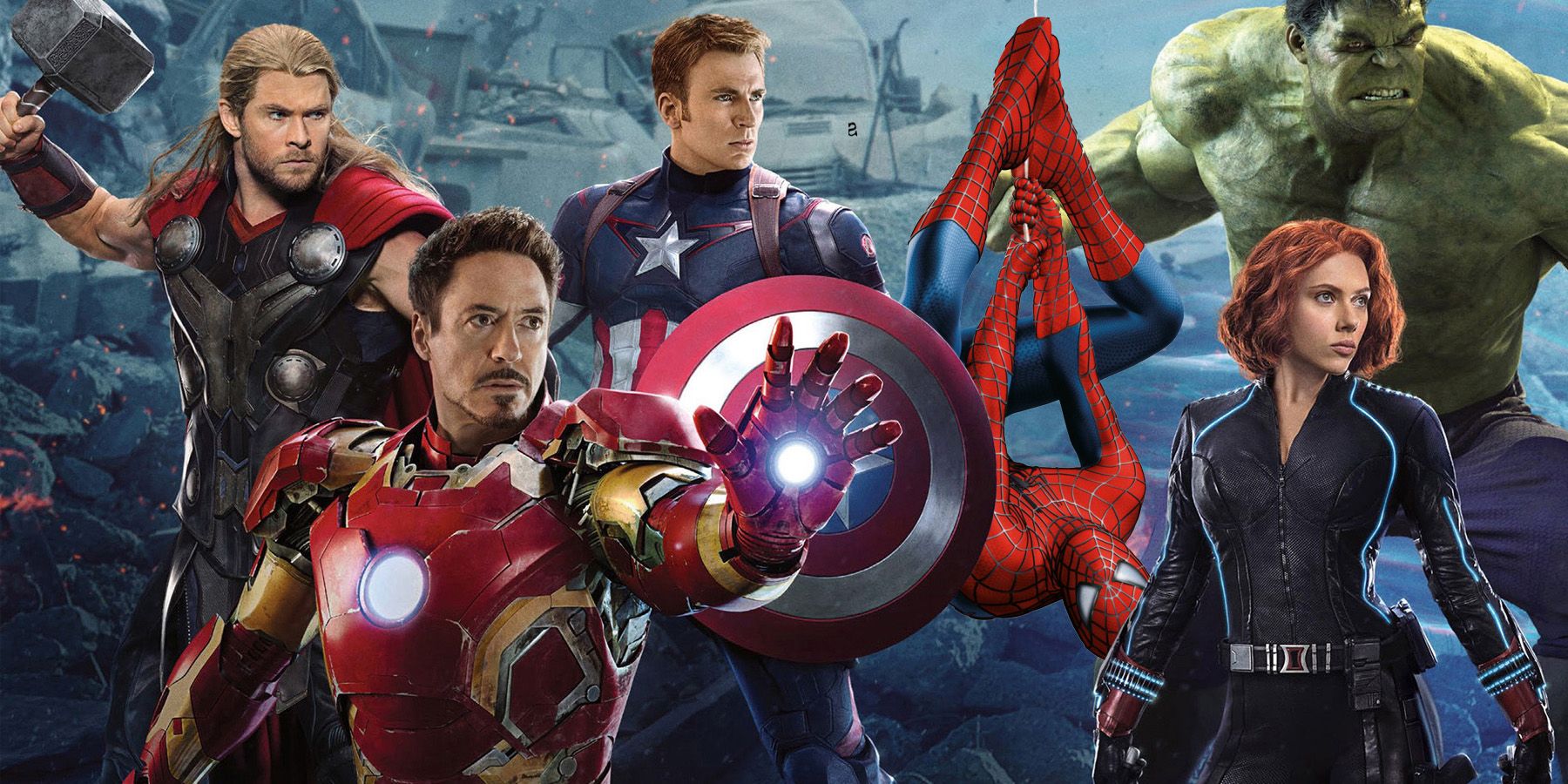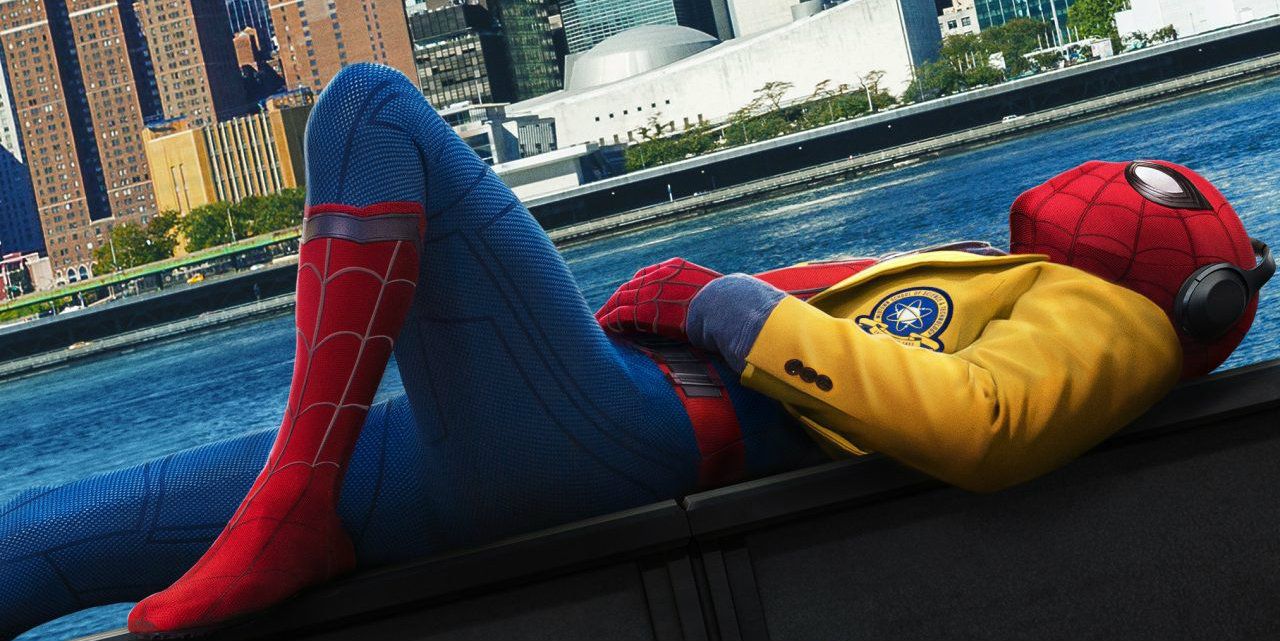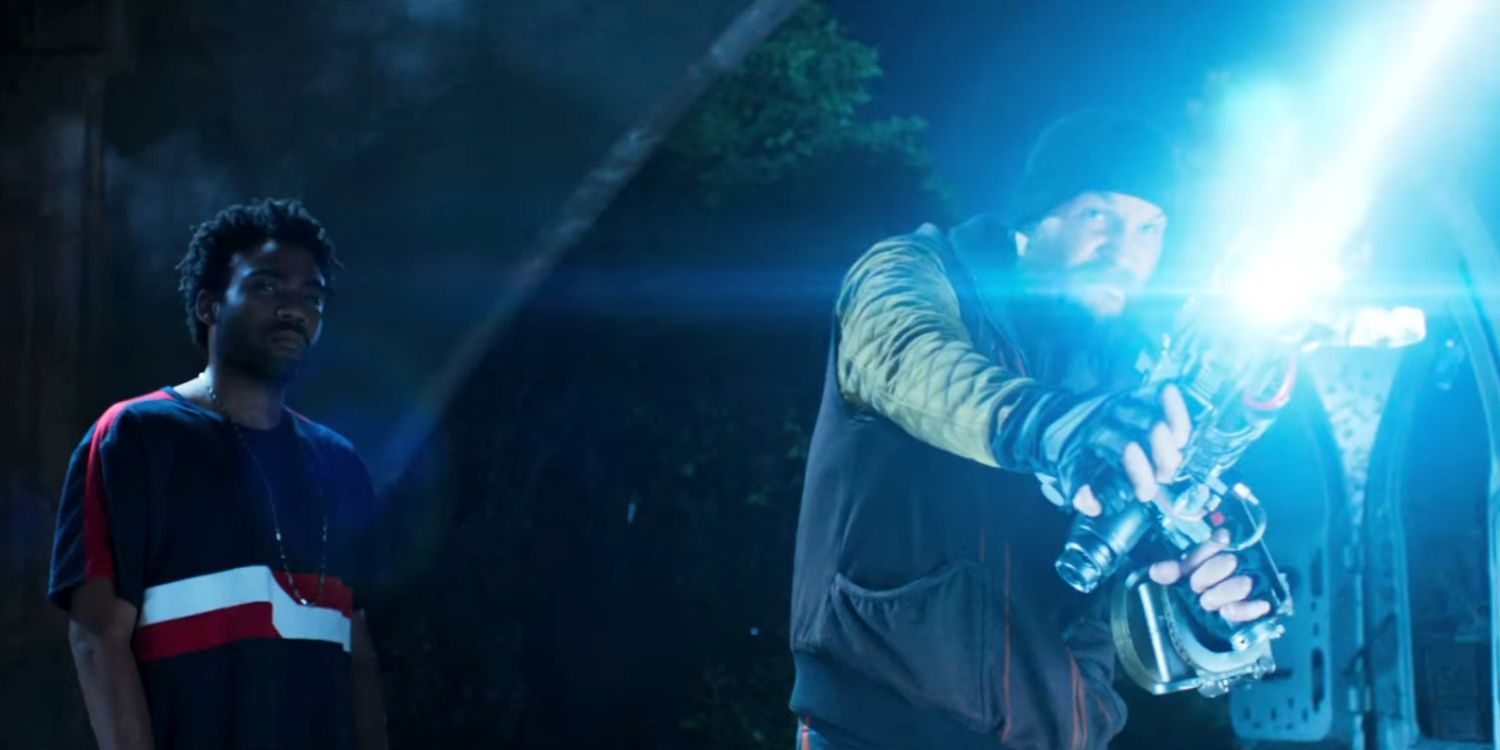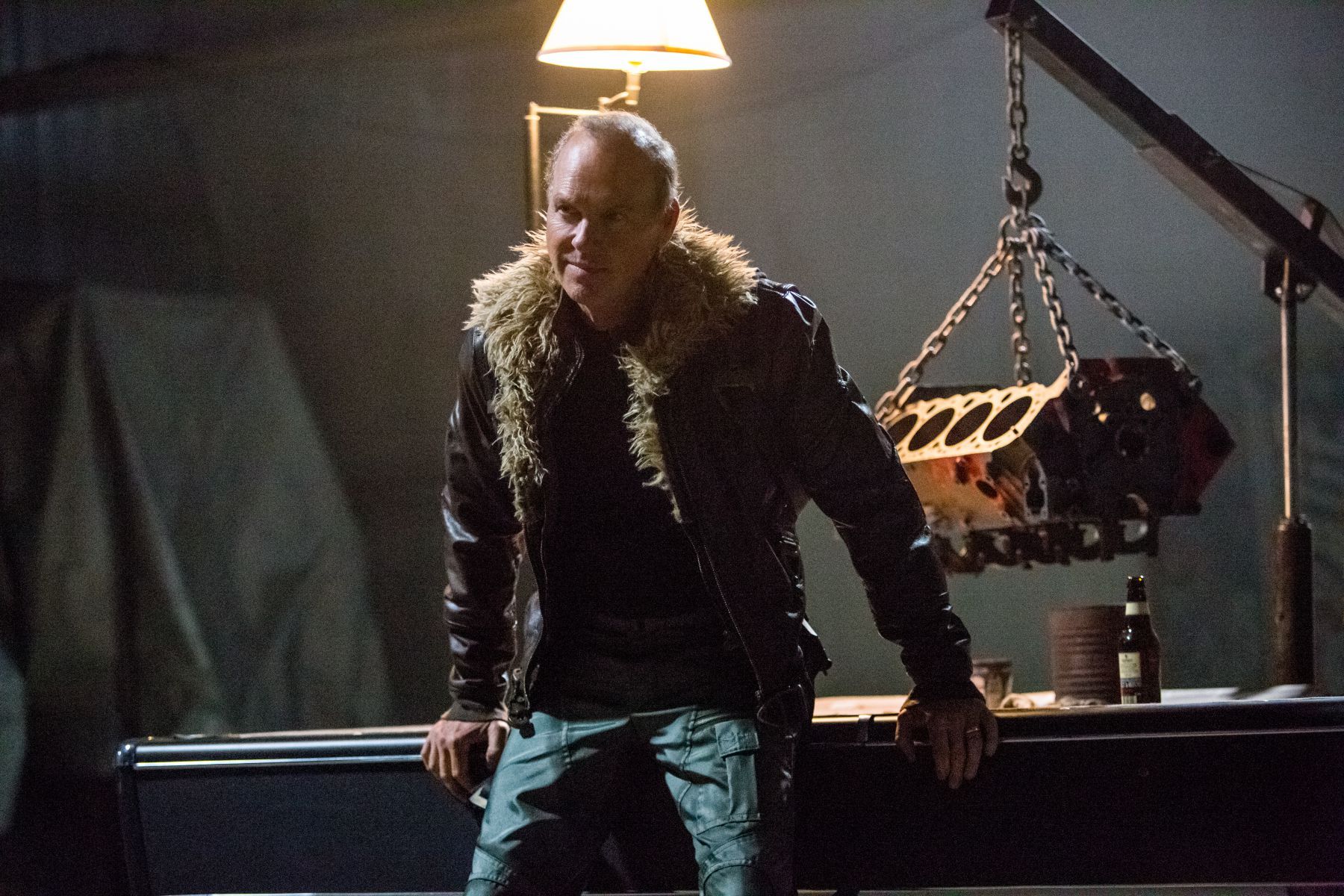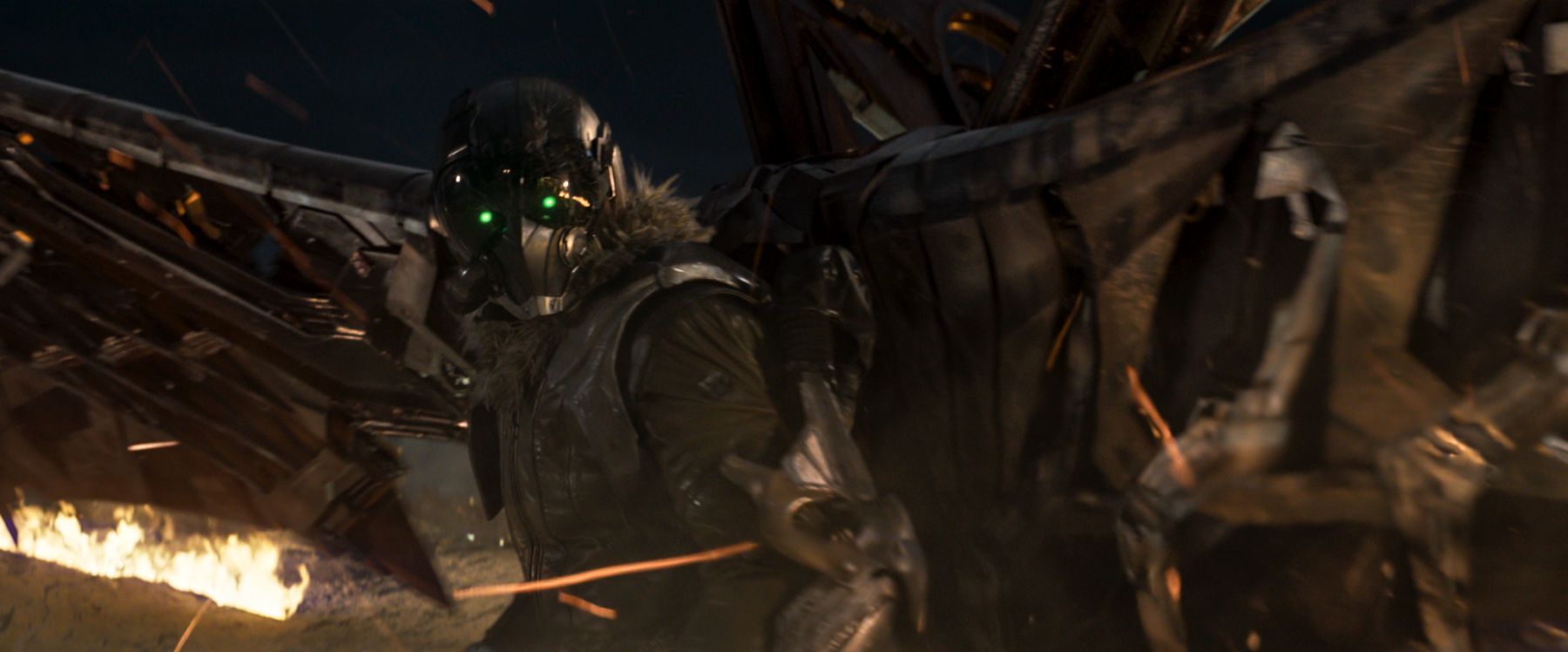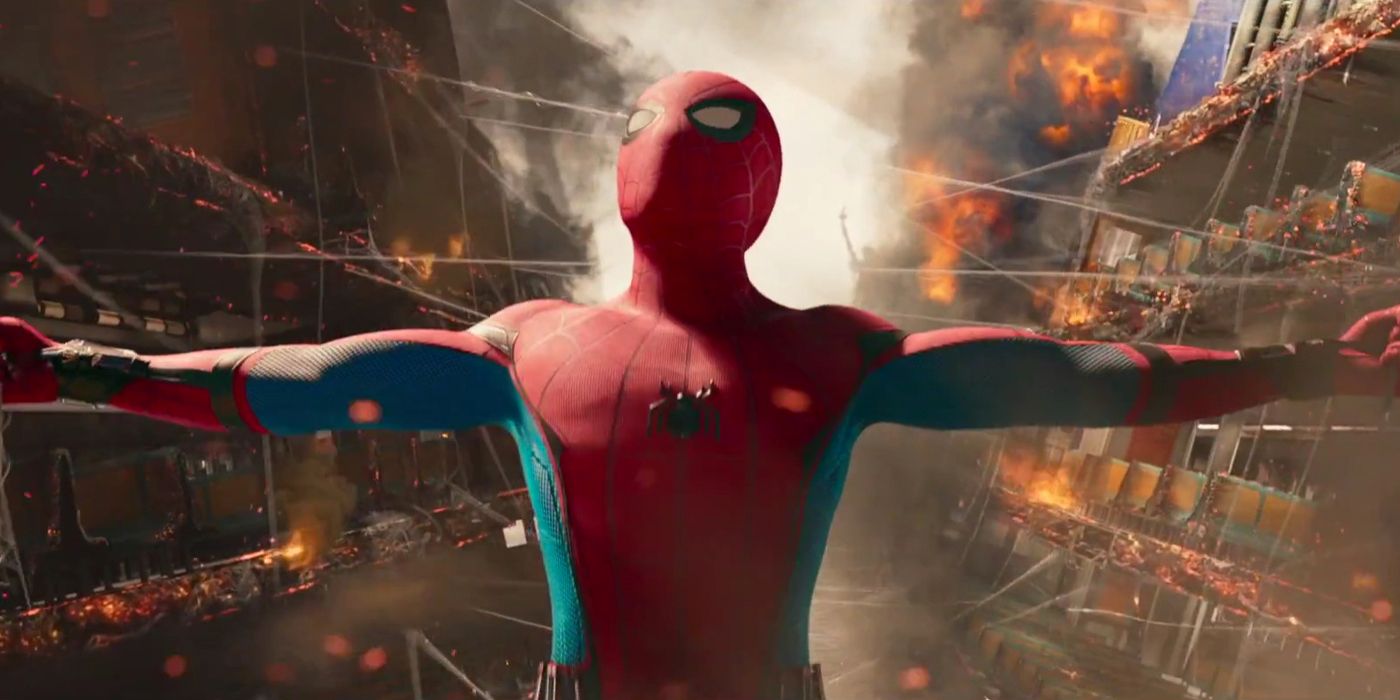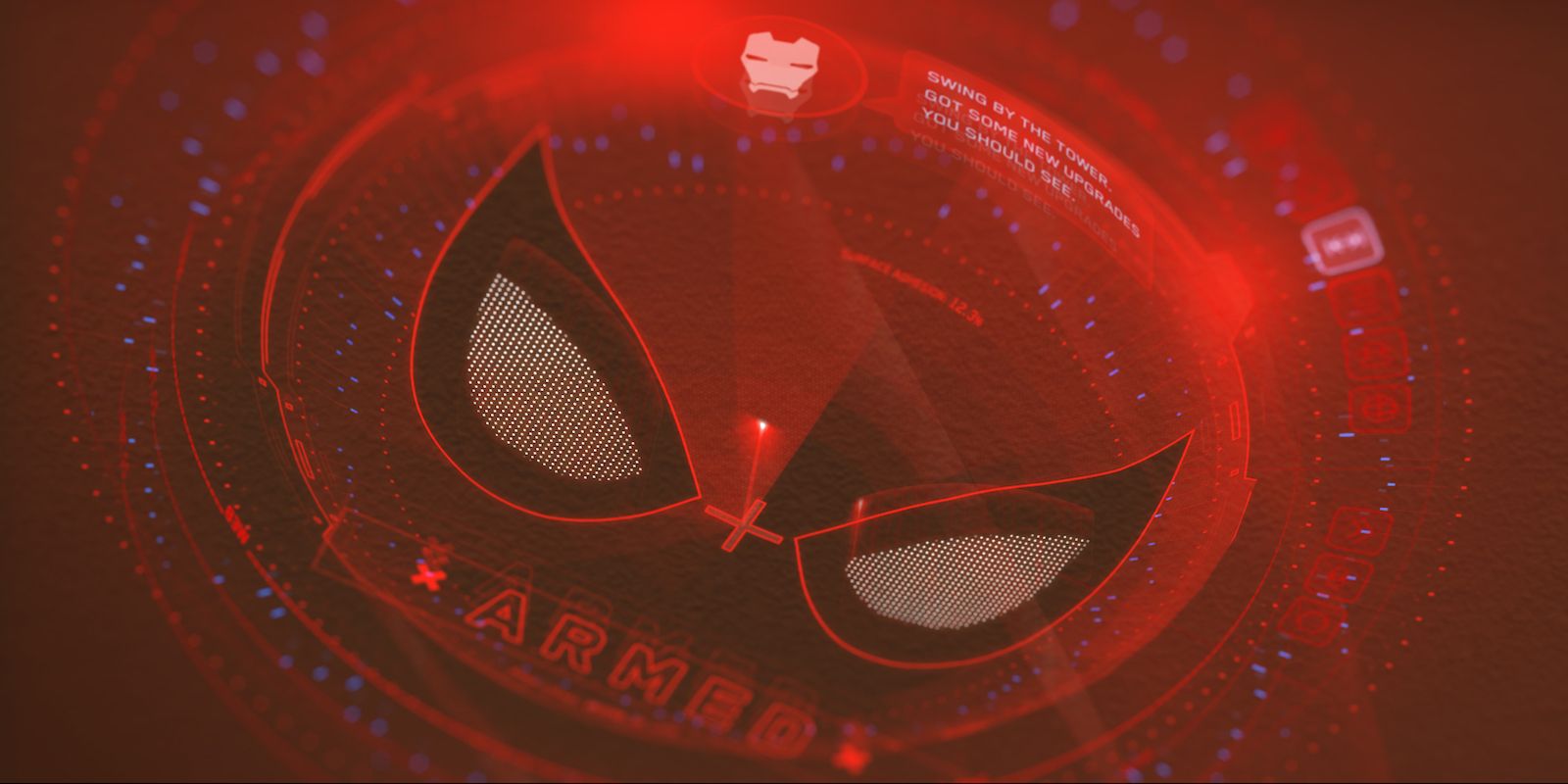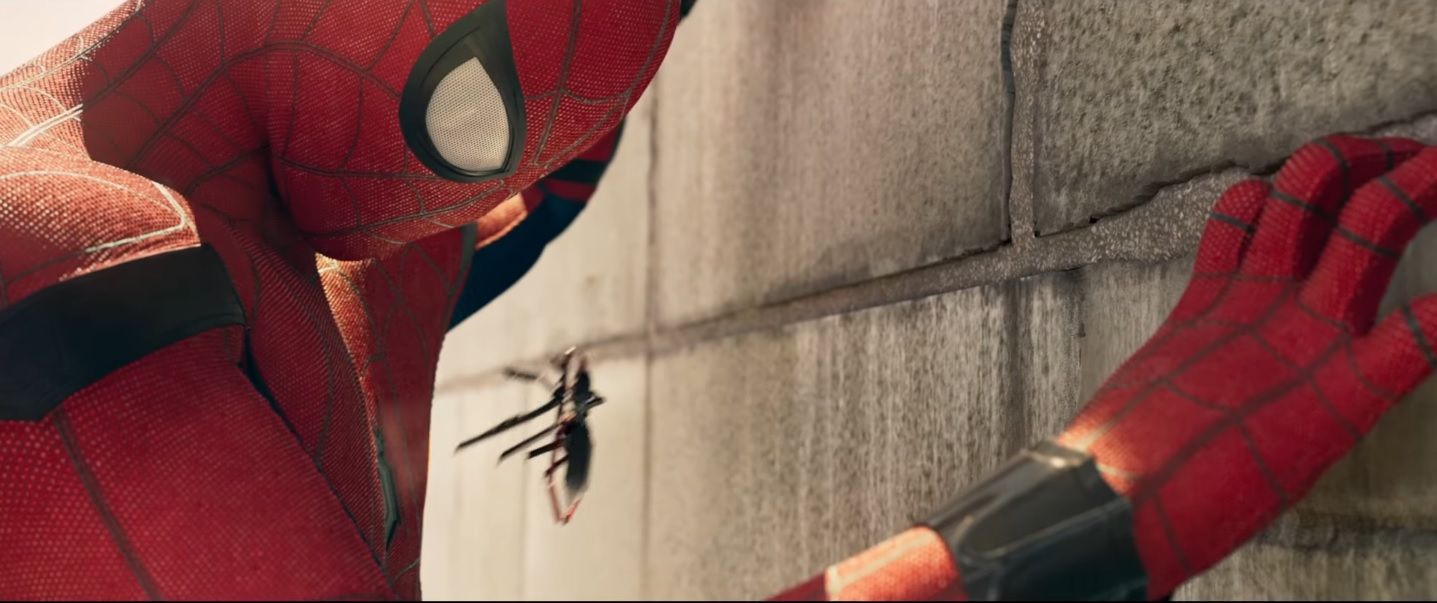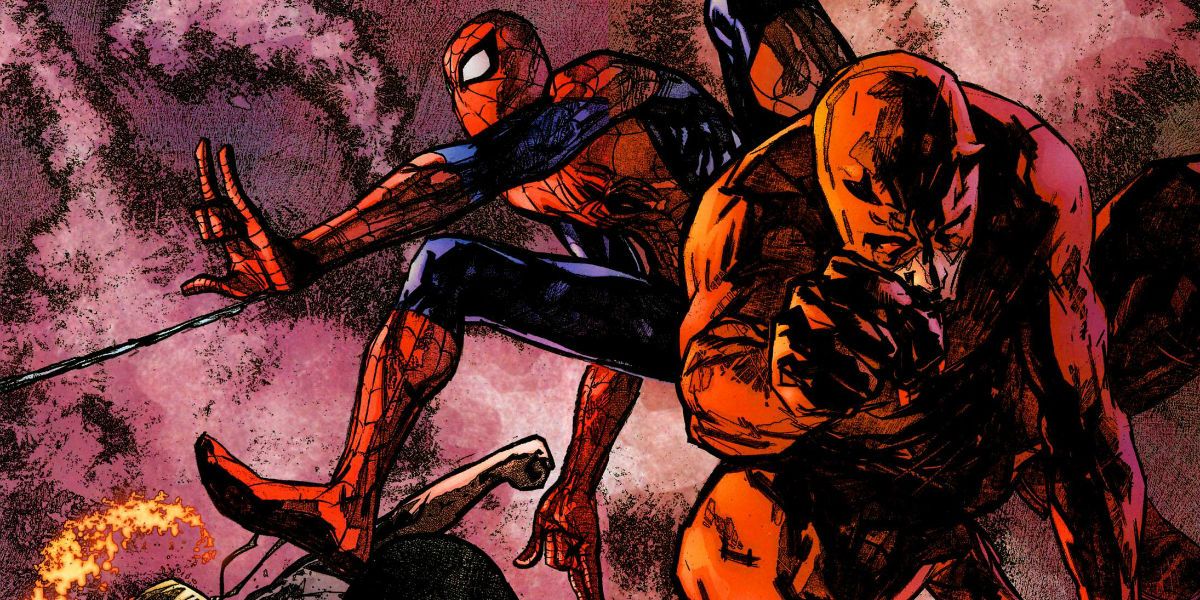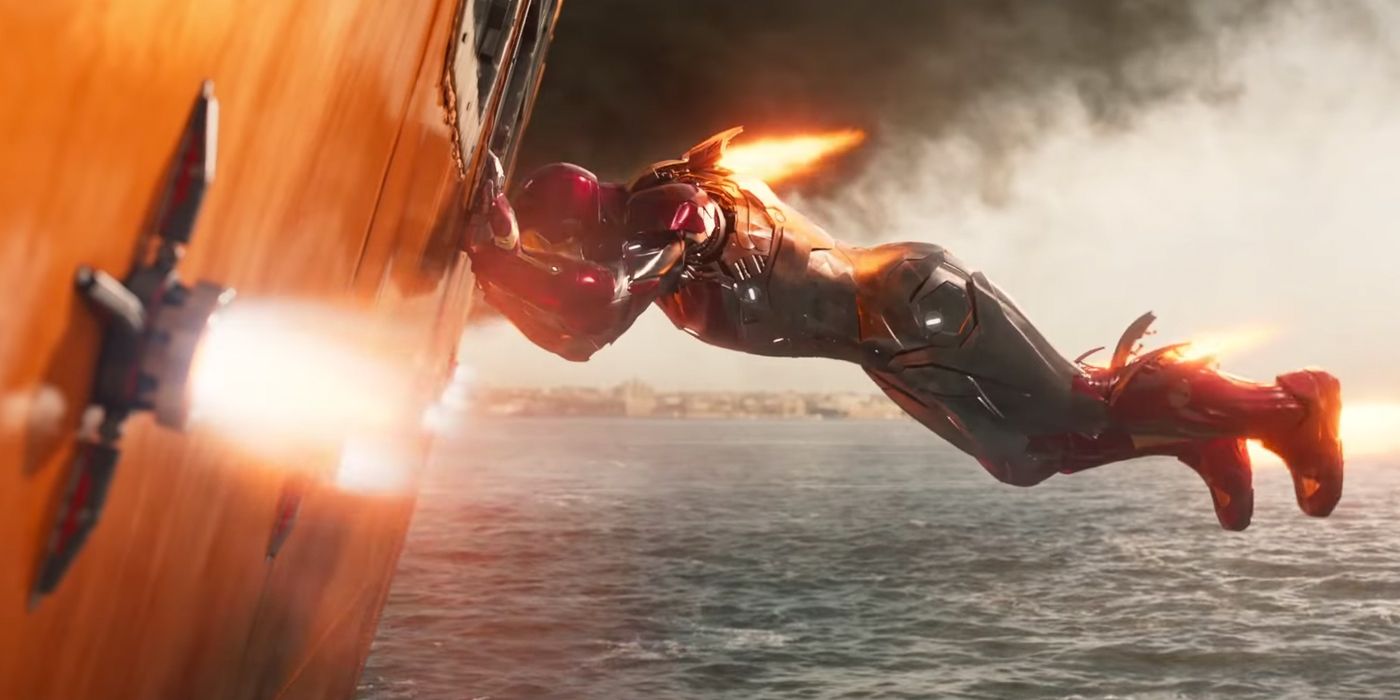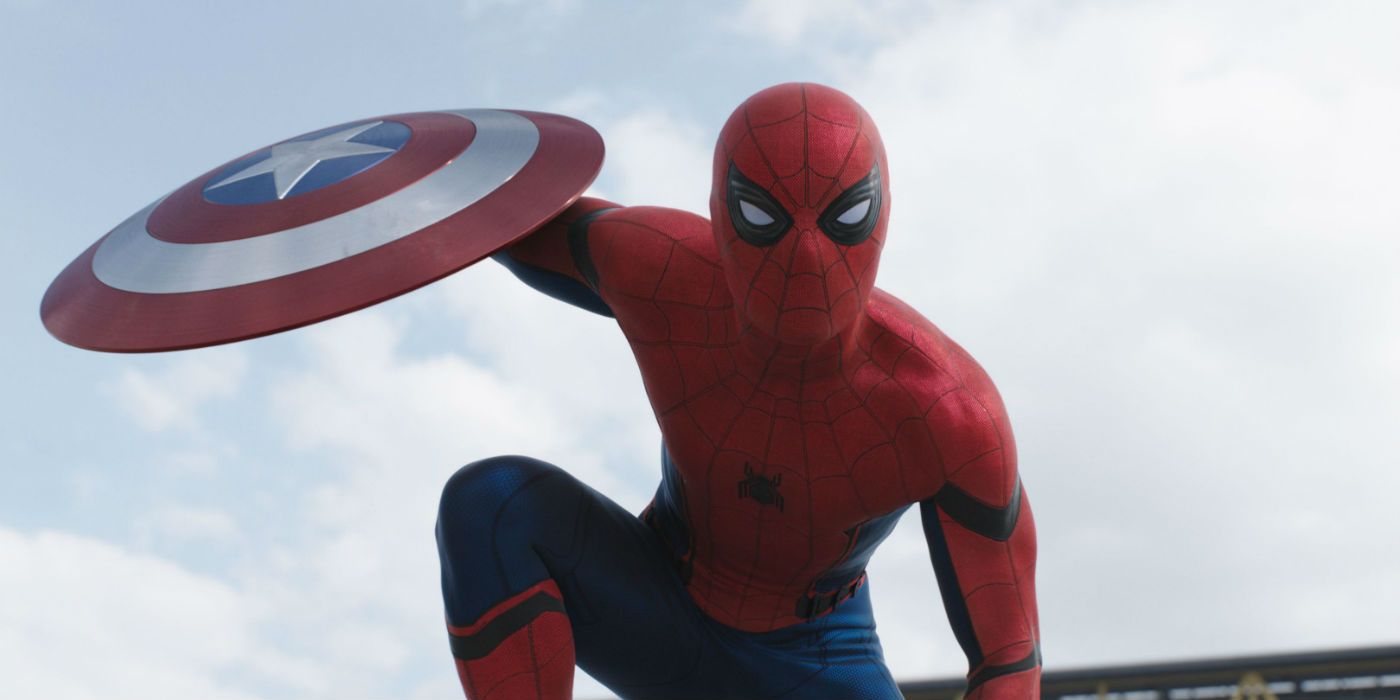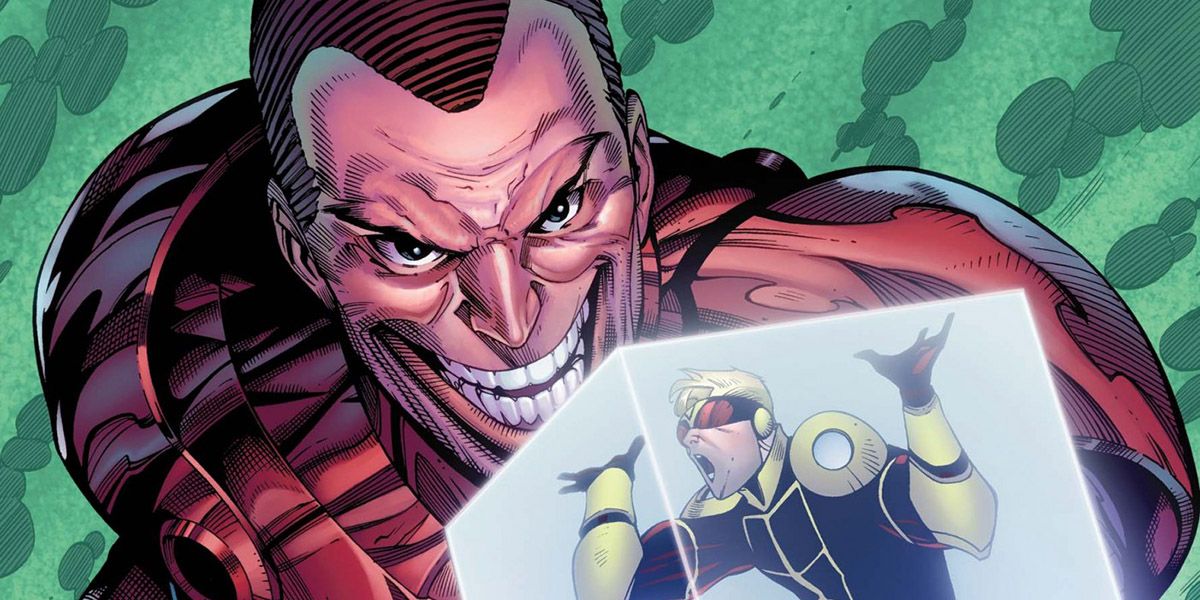While visiting the set of Spider-Man: Homecoming in August 2016, co-producer Eric Carroll walked us through the film's basic premise and its beautiful conceptual art covering the walls of the war room at Atlanta's Pinewood Studios facility. Carroll has some history with Marvel having served as a creative executive the first two Thor movies and as co-producer on Agent Carter.
This is how the day typically begins on a Marvel Studios set before we get a chance to observe filming and if available, check out props, sets, costumes, etc. while interviewing select cast and crew.
We'll skip the spoiler-filled play-by-play and instead focus on our group chat with Carroll where we dive into who the new supporting characters are, the plan for Spider-Man villains going forward, Peter Parker's family, Iron Man's role, the new costume, the theme of Spider-Man: Homecoming, and much, much more!
What is Ned’s last name?
Eric Carroll: We don’t say in the script right now. For some of the characters, we didn’t. We definitely started with the Ned Leeds character as sort of the idea. But they’re all kind of composites of our favorite characters from those comics, so him especially, especially once we cast Jacob we just kind of never put the word ‘Leeds’ in the script.
Who is Logan Marshall-Green is playing?
Eric Carroll: He’s one of the guys on [Adrian] Toomes’ crew.
Hannibal Buress is said to be a coach on IMDB. Is he the coach of the academic team?
Eric Carroll: No, he is a coach at the school. He is the guy who got the unfortunate job of running the athletics department at a school for smart kids. [Laughs]
Can you talk any bit about the rumor of Mary Jane being in this movie?
Eric Carroll: Um, I can tell you that Zendaya is playing a character named Michelle. And I promise you, when the movie comes out, that her name is Michelle.
Can you tell us anything about Donald Glover’s role?
Eric Carroll: No, no.
So when does this movie take place? Generally in the MCU, movies take place when they are released. But this feels like it’s…
Eric Carroll: It will be a little off. There will be some awkward chronology in that the movie comes out almost two years after Civil War, but we’re playing it like it’s a few months after Civil War. It hasn’t been years since Tony called him back. It came down to one of things we wanted to do was keep him in high school as long as possible. Let’s have him do something fun and different. Sony came to ourselves when we sat down and we thought, ‘Why do this version?’ And it is because we can really do a high school. Show that this is a young hero. Otherwise you have seen it all before…
This is a fun, different take. If we say that it was actually two years after Civil War then he’s moving on, he’s a senior, and when the next movie comes out, it’s his sophomore year of college, and we really wanted to do multiple movies where he’s in high school.
So is he a sophomore in high school at this point?
Eric Carroll: That’s, yeah, we are playing it off as he is at the beginning of his sophomore year. And so, when Tony met him, he was roughly either at the beginning of his sophomore year, the end of his freshman year.
When Tony came to him, how long had he been Spider-Man? From his first time in the costume until now…
Eric Carroll: Ah, um, less than a year, I think, is what we’re saying. I think there’s a line in Civil War that maybe got cut where he says, “the last four or six months, or something, crime has dropped by four or six percent” or something like that. So there’s a little established chronology there that sort of implies when he started, at least. The time where he got his powers. And then this, we’re saying, I think the current script calls it out as saying just under five months since the events of Civil War.
Is Vulture the first super-villain he has faced?
Eric Carroll: Yes. This is, aside from his adventures in Civil War, this is the biggest thing he has ever done.
Is there any kind of reference to the origin?
Eric Carroll: There are references to it, absolutely. The story you know and love of Spider-Man is the story of this Spider-Man. We have not changed his origin story, per se. But, we just felt that showing it in any more depth locked us into a structure of a movie that has been made a couple of times, and , you know: a) it was done well before. There’s no reason to rehash it. We all know the story. And again, as soon as you start doing a flashback, it just feels familiar. It feels like what they do in the Batman films, where they maybe don’t always just dwell on it, but at the same time, they show it, or it’s starting to feel like Spider-Man, Amazing Spider-Man.
Some of us are very big Seinfeld fans.
Eric Carroll: Sure!
Um, the ‘Summer of George’ working title. Where did that come from?
Eric Carroll: We pick code names that make us giggle. Around that time in L.A., there was the channel that showed the Seinfeld reruns from 10 to 11 pm, and we all started coming in the next day and talking about Seinfeld. And when we had to pick a code name for this, Summer of George was one [suggestion] that made us all laugh the hardest. Our email addresses are Episode 1456.com, which is, that’s the reason. For a while, we were going to try and throw a cameo in there, too, but [something] just snuck up on us.
Is there any sense of what Vulture’s ultimate plan is? Does he want to take over the world?
Eric Carroll: No, no. He is a businessman with a family. He wants to look out for who his kids. He’s got sort of a Tony Soprano mentality. He doesn’t have these big delusions of grandeur where he wants to take over the world, or replace the government, or even defeat the Avengers or anything. He just wants to… he wants his shot at the good life, and he thinks it’s not fair that someone like Tony Stark can make a fortune selling weapons and find the light, turn away from that, and be looked upon as a hero and then even worse, help found – as you’ll see – he gets paid to clean up the mess. … So he’s one of those guys. ‘I’m doing some shady stuff, but I’m not really hurting anyone,’ you know?
Do you meet his family?
Eric Carroll: Yeah, you do!
What’s the balance between CG Spidey scenes and practical ones?
Eric Carroll: Well, we originally thought it was going to be more CG that it is, because we did something incredibly unfair to our costume designer. We showed her the CG ones from Civil War and said, ‘Do that!’ Which is, again, completely not fair. And then we had these awesome drawings to go from that are kind of unrealistic in how uptight it holds the head and stuff. But what they did is create a costume that besides the moving eyes that this one has, it’s pretty great. There are a couple of scenes that we might want to be moving the head and reduce the size of the helmet he wears under there and make it look more like a [something]. There’s a lot of practical Spider-Man in this. Way more than even we went into it expecting going into it. Because, especially in the medium to wide shots, that suit plays [something]. And for close-ups that don’t involve the moving eyes, which you’d have to use CG anyway, we’re realizing what you can get away with. Honestly, with that balance, it’s perfect. It’s great. It’s really cool.
Once those training wheels come off, as it were, so it sort of sounds like JARVIS. Will he have a voice inside, like literally?
Eric Carroll: He does. He does. Which surprises him, because he doesn’t until Tony deactivates that… deactivates the [Training Wheels] protocol. So the suit starts doing a bunch of stuff. You know, it does a holographic interface, and things like that. But probably most notably, it starts talking to him, and he goes, ‘Oh, this is weird.’ And he starts asking it stuff, but he’s not super slick or Tony Stark smart, who invented the OS and did all this. He’s a kid. So he’s like, ‘Um, how do I get to where that thing is?’ And it’s like, ‘Um, I don’t know. Pretty much drive? How are you going to get there?’ And he’s like, ‘Um, if I didn’t have a car, let’s just say, how would I get there?’ And it’s like, ‘Well, if you walk…’ And he’s like, ‘No, OK, alright… I guess just give me directions and I’ll figure out the HOW I’m getting there.’
Related: Spider-Man’s Suit Has Its Own JARVIS
Who is the voice of his JARVIS?
Eric Carroll: We don’t know yet. Uncast, no. Well, sort of. But not official.
In the comics, one of the endearing things about Spider-Man is that you would come and see Peter Parker in his apartment having to clean his suit or whatever. Obviously now he has some kind of super suit. Is this sort of the vision of Spider-Man going forward, more high-tech, or do we see a return to…
Eric Carroll: It is. I think that’s one of the fun things about it, is that in this tech-based… that’s one of the differences I think, pretty much in bringing Spider-Man to the MCU, is the sort of tech spin. Whereas, in the other Spider-Men, you sort of dealt with, like, science – not that science and tech have to be completely divulged. But it was sort of like, scientific accidents gave almost everyone their powers in all five of the previous ones. So when we looked to reinvent the movie, we looked at what sort of tact we could take. And one was that all of the MCU movies try to have this quasi-plausibility, you know what I mean? As much as we can… we try to make it feel like the world we live in. And we felt like if a kid is running around in a skin-tight suit with all of these cool features, it’s probably going to be pretty high tech. That means that, again, his origin is still that he figured out how to build these web shooters, he invents his web fluid. That’s the scene of him making it in school. He does that himself. That’s a practical effect, by the way. A chemist helped us figure out what would melt good together to give us that length of [Laughter] webby fluid liquid. So that was something we actually shot. So there is still parts of that and I think the reverse of that is him in his bedroom with this piece of tech, like, he’s using his 15-year-old computer that he put together from pieces at school that they were throwing out, and that Aunt May found for him and so on. And he’s using it to analyze a piece of Chitauri tech. So I think there’s a tech-based version to what you are talking about, and it is in this movie.
What is the theme of this film?
Eric Carroll: It’s that acceptance of my place. Who am I? It’s a coming of age story. It’s him wanting desperately to be accepted by the cool kids, but then realizing that he is cool.
Is that… so the stinger in Civil War, where the hologram on the ceiling. What is that? Is that going to play into this? Is that how he is contacting Happy?
Eric Carroll: No, no. He just calls him. When he tries to contact him, he calls on his three-year-old cell phone that he has, with a cracked screen and stuff. That is sort of the interface for the web shooters. So even before he deactivates the Training Wheels Protocol, he’s got a really high-tech web shooter. And one of the ideas is that when he does this [movement] he can adjust the spray, and he can even scroll through different web settings, like spinning web, web ball, ricochet web… you know, all of the stuff we can see him do in the comics, Tony has built into this. That was sort of unlocked for him. So when he shines that, it will go [boom noise], and if he wants to shoot just the one swinging web, it will go down really small. And if he wants to web a guy to the wall, it goes [makes noise] and goes like that. It’s kind of like a DSLR camera. He can shoot without it, or he can hold that thing a second, get his aiming right, and really choose a web to shoot.
You mentioned a Ferris Bueller sequence. Do you reference any other John Hughes movies?
Eric Carroll: There are fun little references, but, I mean, we just tried to take out our favorite parts of all of these movies. There was, of course, I think, a Golden Era of those in the late ‘80s and mid-80s. So I do think there is a vibe that can resonate with people who enjoy those movies. But it will hopefully feel contemporary, as well. We’re trying to borrow… I’m thinking that music cue there is a little more of this time.
Does social media play a role?
Eric Carroll: A little bit. You saw him there, kind of jealously watching Avengers clips on YouTube, here they’re getting millions and millions of hits, and he’s like, ‘What about Spider-Man?’ He want to make a name for himself, totally, and in this world, social media is definitely a thing.
Is there a reference to an Uncle Ben?
Eric Carroll: They talk about that, absolutely. It’s not… it’s not a huge thing that I want to go into too much, but there is an acknowledgment that there was a Ben.
But was there a loss that Peter was associated with?
Eric Carroll: Um, yeah, I mean, he’s not around anymore, for sure. They talk about that. We don’t go into any specifics.
Not around as in dead? Or not around as in, he left?
Eric Carroll: Well, I don’t… I mean, we’re implying he’s dead. We have not at all, again, gone into trying to change his origin story as far as I have been envisioning it. But we, just again, we thought that to keep this fun, light tone, as soon as they have to have their, like, ‘Let’s remember our dearly departed father figure’ – it derails that a little. And again, what we’re trying to tell is this sort of fun story of the kid who is doing all the wrong things for the right reasons. And once you do that, it stops becoming a sort of sun movie about a kid trying to be a kid. He’s mourning the loss of a parent.
With the suit unlocked, can you talk about some of the other abilities and features?
Eric Carroll: Sure. He figures out it has a heater, which might have come in handy in the other ones. He finds out that it lights up. At an inopportune time, he finds that out. At one point, there’s… the Spider logo on his chest goes [makes motion with hands] and floats off and starts giving him surveillance data, and he’s like, ‘What?’ In fact, that startles him when it happens because he didn’t even know that would happen. … Long story short, we tried to look through the comics and pull out all of the sort of fun and wacky things that Steve [Ditko] did, which seemed even harder to explain when he built it in his own bedroom. So, like, there’s an air bag at one point. What else? There are different sorts of webs that he can unlock, too. He has one that can sort of tase people. One that shoots multiple webs at the same time out of one wrist – like, it shoots in two or three different directions.
How much of the movie is Peter, and how much is Spider-Man?
Eric Carroll: Spider-Man probably got the slight edge on him, because we want to get into the whole flashback [to Civil War], and of course we still want it to be fun and spectacular. But I do think, emotionally, it’s split pretty evenly. Of course, we’re going to spend a lot more time on references like this and this than we are time inside of his classroom [trails off]
How does this further the whole grand scheme of things leading up to Avengers: Infinity War?
Eric Carroll: Well, again, I think one of the most fun things about it is showing this sort of everyman’s version of the MCU, that it isn’t just people who get to suit up when the aliens show up. Some people are like, ‘What’s going on over there? I’m going to see my family in New Jersey. This is some scary stuff’ you know? And I think establishing that there’s Peter and May and a bunch of real-world characters that we’re going to care about now, I think that will be fun to play with now that the Avengers movie, when disasters start striking, they’re not just, ‘Oh my gosh, what’s happening to Black Panther and his friends?’ It’s like, ‘What about that school full of kids that we know?’
Is there a sense that Spidey knows about Daredevil or Luke Cage?
Eric Carroll: Not specifically referenced in this movie, no. I think that’s something we all think would be really fun and it’s definitely a card I would love to see played, if not sooner rather than later. But as of now, it’s not referenced in this movie.
And he’s in Queens, so it’s like so far away.
Eric Carroll: It’s so far. [Laughs]
It’s like two trains.
Is Robert Downey Jr. only in like two scenes?
Eric Carroll: No, actually, Downey is in more than that. He might be in like five or six, yeah.
When he shows up in the Iron Man suit in that scene, is it the same armor from the last movie or is it an upgraded version?
Eric Carroll: That is one of those great decisions we don’t have to make for a few months. [Laughter] But a bunch of our consumer products friends would strongly prefer it to be a new one. [Laughter] And I have the email chain to prove… and we, uh, and to be frank, we think that’s always fun. So, as of now, in all of the renderings, we’re just using his Civil War armor. But I wouldn’t be surprised if he got another armor upgrade.
One of the cool elements of this movie is bringing in the young crew. That leads to a whole bunch of sequel ideas and possibilities. Those sequels, will they fit into Marvel’s Phase Three slate, or will that be a Phase Four slate?
Eric Carroll: Going forward, you would definitely sort of treat them all as the same slate. So we would be strategic about where future Spider-Man movies fall in the MCU of it all as we would if Sony weren’t involved. You know what I mean? Because again there’s nothing in it for us or for Sony to accidentally start competing or putting a movie out at the wrong time or confusing the continuity.
Do you know if that’s three movies a year, or is that four movies a year?
Eric Carroll: Uh, well, I think eventually we’re going to have to abandon that… It’s actually a really small team at Marvel. I think on that creative side, those of us who go on the retreats, it’s like eight of us. So I think we would either have to rethink things, and I think at that point, Kevin [Feige], Luke and Victoria would have a little less of their DNA in everything if we start going to a fourth. I think three is already happening and it’s going to happen when we think its fun and needed, but beyond that, I think we start to get into a question of whether we should or not.
Will this series stay small-world, where the characters are all related to each other?
Eric Carroll: Yeah, we want… a soap opera is exactly the thing that we talked about a lot. The high school side of things should be complicated on its own, and further complicated by the fact that he disappears all of the time, and/or maybe he… there are lots of great lines from the comics where maybe he knows something about one character’s brother or sister or parent, that person doesn’t know, but maybe it explains why this person is being mean to him or explains why this person is such an overachiever – be cause she’s making up for her dead-beat brother, or something like that. So that’s all stuff we want to dive into. We also want to tread lightly with what’s been done in the past films in terms of, like, the Osborns, and things like that. So I don’t think… we’re not going directly down that route any time soon.
You won’t show Oscorp or anything like that?
Eric Carroll: No. We figured, honestly, if there was a way to do this movie without mentioning anyone who has been in any of the past films with the exception of a couple of staples, like Flash and Aunt May, that might be a good thing to do to help people… when that first trailer comes out, we want people to be like, ‘Every frame of this feels different.’ And if you have Flash and Osborn and the gang there, it’s like, ‘We’ve just seen this.’
Would you say that’s the biggest influence, the previous two versions, is keeping away from them?
Eric Carroll: [Laughs] No! No. Not even … not just because I have to go back and hang out in video village with Amy [Pascal] later, but honestly, it was way more like your dad handing you the keys to the Lamborghini. It was so much less about past films and so much more like, ‘Oh my God.’ This was the one unspoken rule when you came to work at Marvel: ‘Hey, well, he’s the crown jewel. We’ll never get him back. We’ll never get to play with Spider-Man. But look at all of these cool characters!’ [Laughs] So when all of a sudden there’s this opportunity to play with Spider-Man in the MCU, that’s all it was. It was like, ‘How can we do this fun?’ Yes, let’s differentiate ourselves. But it was never, ‘We can’t make it like that.’ It was just, ‘How do we make it feel new?’ Just like we would with any other movie. Hopefully Iron Man 3 feels different from Iron Man 2 and so on and so forth. The idea is how can we create a surprise without making people feel like, ‘It’s Spider-Man, but Iron Man is popping up in this scene.’
So we shouldn’t expect to see The Daily Bugle?
Eric Carroll: No. We toyed with it for a while, but again, we didn’t want to go down that road right away and if we do do a Daily Bugle, we want to do it in a way that feels contemporary. Working in a newspaper while fighting crime and overachieving, it just felt like one of those things where like… maybe it’s in his future? Maybe it’s what he does in college or something like that. But for now, no.
How did you pick The Vulture as the villain?
Eric Carroll: We at Marvel start with something called the Discussion Document, where it’s sort of like a Mission Statement. It’s a 20- to 30-page document where we just go, ‘This is what we think it is! This is what we think will be fun! Here’s some cool characters!’ We laid them all out and put all of the ones who had been in the movies before and Vulture just felt compatible with the MCU. When we sort of struck on the fun thematic thing of The Vulture being somebody who scavenges what the Avengers and their enemies leave behind, we all just got really excited by that. But we told all of the writers and all of the directors who came in, ‘Pitch us anything. It’s one of these best-idea types of scenarios.’ If someone came in with the greatest Doc Ock pitch of all time, then we were like, ‘This is it! It feels new, it feels different, it feels MCU specific, we would have done it. But frankly, I think all but two people came in and pitched The Vulture to us. And we were excited. We were leaning that way anyway, but then we heard that idea that [Jonathan] Goldstein and [John Francis] Daley pitched, and we were like, ‘Yeah, this is cool. It feels MCU. It feels unique. It feels like you haven’t seen it before.’
Why Jon Watts?
Eric Carroll: When we start a director search, we of course make our own wish list that we reach out to the agencies, and they of course start to pitch us people, and it becomes pretty evident pretty quickly which, that they’re pitching us because maybe there’s something there, or that maybe their client is desperate to take a crack at this character. And, to be perfectly frank, I hadn’t heard of Jon Watts. I hadn’t seen Cop Car yet. And CAA … kept saying., ‘Just watch Cop Car. Just watch Cop Car.’ And me and Jeremy said, ‘We’re going to! We just have like 75 people we have to get to, and we never heard of this guy! We’ll get there! We’re going down the list. We promise.’ And they sent us a Blu-ray of Cop Car. We watched it and we thought, ‘That was really cool.’ I don’t know how many of you have watched it, but it has this really cool almost Amblin-esque vibe to it. There’s an innocence to the kids and their performance that’s fun, and something that we have always been talking about here, where a lot of high school movies are pretty heavy, that he brought this… even in that story, which takes a dark turn, it’s got a levity to it in the beginning. And the performance that he got out of those kids. That was really encouraging, too. And then we brought him in to pitch, and he right off the bat was on the same page as us. He was like, ‘How cool would it be to be Spider-Man?’ We didn’t have to go right down the, ‘Oh, woe is me. Being a superhero is really hard’ thing. And we were like, ‘No, exactly!’ So we kind of like nerded out around the table for an hour and sent him away and told him some of our thoughts, sent him away, and when he came back, we were all, ‘Wow, this seems really cool, really special, really what we were hoping someone would bring to the table.’ He just pitched himself until he got the job. A lot of this here is directly from him.
More: Jon Watts Spider-Man: Homecoming Set Visit Interview
What kind of influence has the reaction to Civil War and he reaction to him in that movie have on this film?
Eric Carroll: Well, we just realized how… you know, there’s a little bit of nervousness in him being so unsure and it’s less about him being funny in the moment and more like being nervous and awkward in the moment. When people responded as positively as they did to that, that was sort of a relief. Because we thought he was funny! So we doubled down a little on it in this script. So that’s a big one. But at the end of the day, not too much. Because of how quickly we would have to get going on this movie to bring it out in time, we were pretty far down the road on this script by the time Civil War had come out.
Are there any Spider-Man characters that are off the table for you? We have heard about development, maybe, on a Venom movie. Would that be MCU?
Eric Carroll: As of now, nothing… we have not been told of anything we’re not allowed to play with at the moment. They do have their own plans. What it is at the moment, we’re not sure what it is after this. But for now, we’re making this movie with them and they have not told us anything about the plans, so... This one has been great, though.
How does that work? If you guys decide not to put Oscorp here, but Iron Man 4 comes out, and you decide it would be great to have Norman Osborn be a rival to Tony Stark? Could you do that?
Eric Carroll: Again, they’ve been open. They’ve been very much sort of like, they have creatively not put any onus on us, at all. They said, ‘Come back to us with your pitch.’ We pitched them. They said, ‘We love it.’ They give some of their thoughts and their hopes, and we just work together on it. But there was literally no list of ‘Don’t ever do this.’ If we came up with a Norman pitch that we wanted to use in a feature movie, maybe. Yeah totally. But I’m sure we’d have to figure out deal by deal… Right now, what we have worked out is Civil War and this movie, and hopefully [tails off].
Are you working with them on the animated film?
No, that’s Sony.
More: 12 Things You Need To Know About Spider-Man
A young Peter Parker/Spider-Man (Tom Holland), who made his sensational debut in Captain America: Civil War, begins to navigate his newfound identity as the web-slinging super hero in Spider-Man: Homecoming. Thrilled by his experience with the Avengers, Peter returns home, where he lives with his Aunt May (Marisa Tomei), under the watchful eye of his new mentor Tony Stark (Robert Downey Jr.). Peter tries to fall back into his normal daily routine - distracted by thoughts of proving himself to be more than just your friendly neighborhood Spider-Man - but when the Vulture (Michael Keaton) emerges as a new villain, everything that Peter holds most important will be threatened. Directed by Jon Watts. Produced by Kevin Feige and Amy Pascal. Screenplay by Jonathan Goldstein & John Francis Daley and Jon Watts & Christopher Ford and Chris McKenna & Erik Sommers, Based on the Marvel Comic Book by Stan Lee and Steve Ditko.

